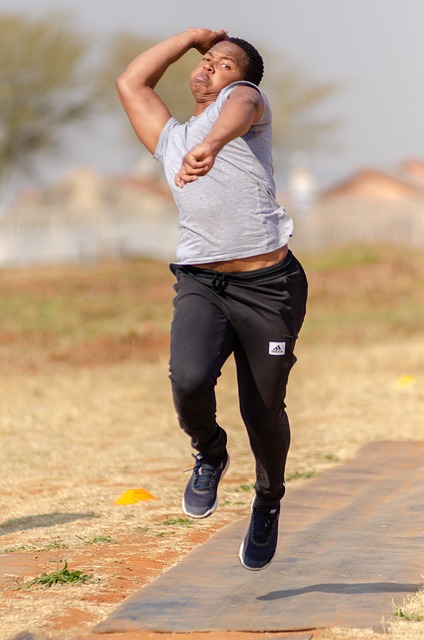The Psychology of Framing Effects in Sports Betting: Shifting Perspectives
Online Cricket ID, Online Cricket ID: Framing effects play a significant role in the realm of sports bettinginfluencing the decisions made by bettors. The way information is presented can sway individuals towards certain choicesregardless of the actual odds or probabilities involved. For instancethe framing of a bet as a potential gain or loss can impact how a bettor perceives the risk and potential reward associated with that particular wager.
Moreovercognitive biases can further exacerbate the impact of framing effects on decision-making in sports betting. Bettors may fall prey to biases such as loss aversion or overconfidenceleading them to make suboptimal decisions when faced with differently framed options. By understanding how framing effects and cognitive biases interact in the context of sports bettingstakeholders in the industry can work towards developing strategies to mitigate their influence and promote more informed decision-making among bettors.
The Role of Cognitive Bias in Decision Making
Cognitive bias plays a significant role in decision making across various aspects of lifeincluding sports betting. These biases can lead individuals to make decisions based on irrational or illogical factors rather than objective information. In the context of sports bettingcognitive biases can influence gamblers to overestimate their chances of winningignore contradictory evidenceand succumb to the sway of emotions rather than making informed choices based on probabilities and statistics.
Moreovercognitive biases can also manifest in the form of heuristicswhich are mental shortcuts that individuals use to simplify decision-making processes. These heuristics can lead sports bettors to rely on quick judgments and gut feelings rather than conducting thorough analyses. By understanding the role of cognitive bias in decision makingbettors can become more aware of their thought patterns and biasesultimately helping them make more rational and strategic choices when engaging in sports betting.
• Cognitive bias plays a significant role in decision making across various aspects of lifeincluding sports betting.
• These biases can lead individuals to make decisions based on irrational or illogical factors rather than objective information.
• In the context of sports bettingcognitive biases can influence gamblers to overestimate their chances of winningignore contradictory evidenceand succumb to the sway of emotions rather than making informed choices based on probabilities and statistics.
• Moreovercognitive biases can also manifest in the form of heuristicswhich are mental shortcuts that individuals use to simplify decision-making processes.
• These heuristics can lead sports bettors to rely on quick judgments and gut feelings rather than conducting thorough analyses.
• By understanding the role of cognitive bias in decision makingbettors can become more aware of their thought patterns and biases,
ultimately helping them make more rational and strategic choices when engaging in sports betting.
How Framing Influences Betting Behavior
Framing effects play a significant role in influencing betting behavior within the sports industry. When presented with information framed in a positive lightindividuals tend to exhibit a more risk-seeking attitude and are more inclined to place bets. Converselynegative framing can lead to a more risk-averse approachcausing individuals to be cautious and hesitant in their betting decisions.
The way information is presented can impact how individuals perceive risks and rewards in sports betting. For instancea bet described as having a “90% chance of winning” may be more appealing than one framed as having a “10% chance of losing,” even though the underlying probability remains the same. Understanding how framing effects can sway betting behavior is crucial for both bettors and industry professionals to make informed decisions and implement effective strategies.
The Impact of Positive vs. Negative Framing in Sports Betting
Positive and negative framing play crucial roles in shaping betting behavior in the sports industry. When presented with positive framingindividuals tend to focus on potential gains and benefitsleading to increased risk-taking and more optimistic outlooks on the outcome of their bets. In contrastnegative framing emphasizes potential losses and risksprompting individuals to be more cautiousrisk-averseand pessimistic in their decision-making processes.
Studies have shown that individuals are more likely to take risks and engage in betting activities when exposed to positive framingas the allure of potential rewards overshadows the risks involved. Converselynegative framing can elicit fear and hesitationleading to conservative betting strategies and a reluctance to take risks. Recognizing and understanding how positive and negative framing influences betting behavior is essential for both sports bettors and industry professionals to make informed decisions and mitigate potential biases.
Recognizing Framing Effects in the Sports Betting Industry
The sports betting industry is rife with various tactics and strategies employed to attract and retain customers. One of the key aspects that individuals need to be aware of is the presence of framing effects in this domain. Framing effects refer to the different ways in which information is presented that can influence decision-making processes. In the context of sports bettinghow oddsoutcomesand potential wins are framed can significantly impact how individuals perceive and approach their bets.
Recognizing framing effects in the sports betting industry requires a keen understanding of how these subtle manipulations can sway an individual’s judgment. For examplethe framing of information as either positive or negative can lead individuals to take on more risks or opt for safer bets. By being aware of these framing techniquesbettors can make more informed decisions and potentially avoid falling prey to biases that may lead to less favorable outcomes. The ability to recognize framing effects can empower individuals to approach sports betting with a more critical and discerning eye.
Strategies to Mitigate the Influence of Framing Effects
To mitigate the influence of framing effects in sports bettingit is crucial for individuals to recognize the power of how information is presented to them. One effective strategy is to actively seek out and consider multiple sources of information before making a decision. By exposing oneself to a variety of viewpoints and framingindividuals can reduce the likelihood of being swayed by a single biased perspective.
Another effective way to mitigate the impact of framing effects is to focus on the underlying facts and statistics rather than the way they are presented. By honing in on objective data and analysisindividuals can make more rational and informed decisionsless influenced by the emotional appeals that often accompany different frames. This analytical approach can help to strip away the subjective influences of framing and lead to more reasoned and evidence-based decision-making in the realm of sports betting.
The Connection Between Framing Effects and Emotional Responses in Betting
Framing effects play a significant role in shaping emotional responses within the realm of sports betting. Research suggests that the way information is presented can elicit varying emotional reactions from individuals engaging in betting activities. Positive framingwhere outcomes are portrayed in a favorable lighttends to evoke feelings of excitementoptimismand confidence among bettors. On the contrarynegative framingwhich emphasizes potential losses or risksoften sparks emotions such as fearanxietyand cautiousness in bettors.
These emotional responses are intricately connected to the decision-making process in sports bettingas they can influence the perception of risk and reward associated with different betting options. Understanding how framing effects impact emotional responses can offer valuable insights into why individuals make certain betting choices and how their emotional state may cloud their judgment. By recognizing these connectionsboth bettors and industry professionals can work towards developing strategies to mitigate the influence of framing effects on emotional responses in sports betting scenarios.
Exploring the Psychological Mechanisms Behind Framing Effects
Framing effects in sports betting are often driven by several psychological mechanisms that influence decision-making processes. One key aspect is the tendency for individuals to focus more on the potential gains rather than losses when presented with information. This bias towards positive framing can lead to riskier betting behaviorsas individuals may prioritize the benefits of a bet over the potential drawbacks.
Another psychological mechanism behind framing effects is the concept of loss aversionwhere individuals have a stronger emotional response to losses than gains of the same magnitude. This asymmetry in emotional reactions can impact how individuals perceive risks and rewards in sports bettingultimately influencing their decision-making. By understanding these psychological mechanismsresearchers and industry professionals can develop strategies to mitigate the influence of framing effects and promote more rational decision-making processes in sports betting.
Practical Applications of Framing Theory in Sports Betting
Practical applications of framing theory in sports betting can significantly impact the decisions made by bettors. By understanding how framing effects influence perceptions and judgmentsbetting professionals can strategically present information to sway their audience’s choices. For instanceframing information in a positive lightemphasizing potential gains rather than lossescan lead individuals to take more risks in their betting decisions. This can be particularly useful for sportsbooks aiming to increase the number of bets placed on certain outcomes.
Furthermoreapplying framing theory in sports betting can help industry professionals tailor their marketing strategies effectively. By framing messages in a way that resonates with the target audience’s emotions and preferencessports betting platforms can enhance customer engagement and loyalty. Leveraging framing effects to evoke specific emotional responses in bettors can create a more immersive and personalized betting experience. This approach can contribute to building long-lasting relationships with customers and increasing customer retention rates in the competitive sports betting market.
Future Directions for Research on Framing Effects in Sports Betting
Future research on framing effects in sports betting could delve deeper into the specific characteristics of individuals that make them more susceptible to framing biases. Understanding the demographicpsychologicaland behavioral factors that influence how individuals perceive and respond to framing in the context of sports betting could provide valuable insights for developing more targeted interventions.
Additionallyfuture studies could explore the long-term effects of framing on decision-making in sports betting. Investigating how exposure to different framing techniques over time impacts individuals’ betting behavior and outcomes could shed light on the persistence and durability of framing effects in the sports betting industry. By gaining a better understanding of the lasting implications of framingresearchers can develop more effective strategies to mitigate its influence and empower bettors to make more rational and informed decisions.
What are framing effects in sports betting?
Framing effects in sports betting refer to the way in which information is presented or framed can influence individuals’ decision-making processes and ultimately their betting behavior.
How does cognitive bias play a role in decision making in sports betting?
Cognitive bias can lead individuals to make decisions based on irrational factors rather than objective informationwhich can be particularly relevant in the context of sports betting where emotions and biases can impact choices.
How does framing influence betting behavior?
Framing can influence betting behavior by shaping how information is perceived and interpretedultimately impacting the decisions that individuals make when placing bets on sports events.
What is the impact of positive vs. negative framing in sports betting?
Positive framing in sports betting may lead individuals to be more risk-seeking and optimistic in their betting behaviorwhile negative framing may result in more risk-averse and pessimistic choices.
How can framing effects be recognized in the sports betting industry?
Framing effects can be recognized in the sports betting industry by studying how information is presented to bettors and analyzing how different frames impact individuals’ betting decisions.
What are some strategies to mitigate the influence of framing effects in sports betting?
Strategies to mitigate the influence of framing effects in sports betting may include increasing awareness of cognitive biasesproviding more balanced informationand encouraging bettors to consider a variety of perspectives before making decisions.
How are framing effects connected to emotional responses in betting?
Framing effects can influence emotional responses in betting by shaping how information is perceivedwhich can in turn impact individuals’ emotional reactions to winslossesand other outcomes in sports betting.
What are some psychological mechanisms behind framing effects in sports betting?
Psychological mechanisms behind framing effects in sports betting may include heuristicsbiasesand cognitive shortcuts that individuals use when processing information and making decisions in the context of sports betting.
How can framing theory be practically applied in sports betting?
Framing theory can be practically applied in sports betting by designing betting interfaces and communications that take into account how information is framed and presented to bettors in order to optimize decision-making processes.
What are some future directions for research on framing effects in sports betting?
Future research on framing effects in sports betting may focus on exploring new methodologiesexamining the role of individual differencesand investigating the long-term impact of framing on betting behavior.







